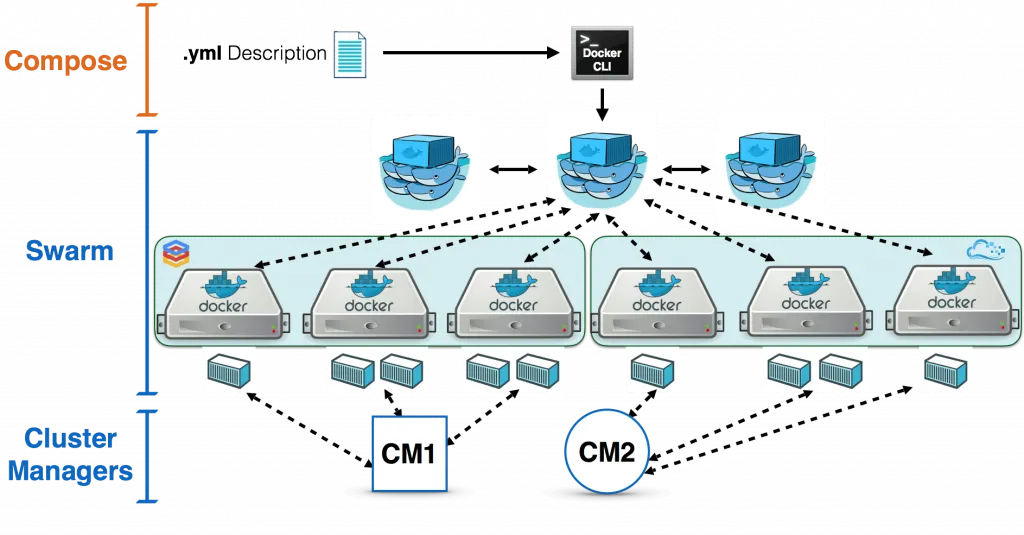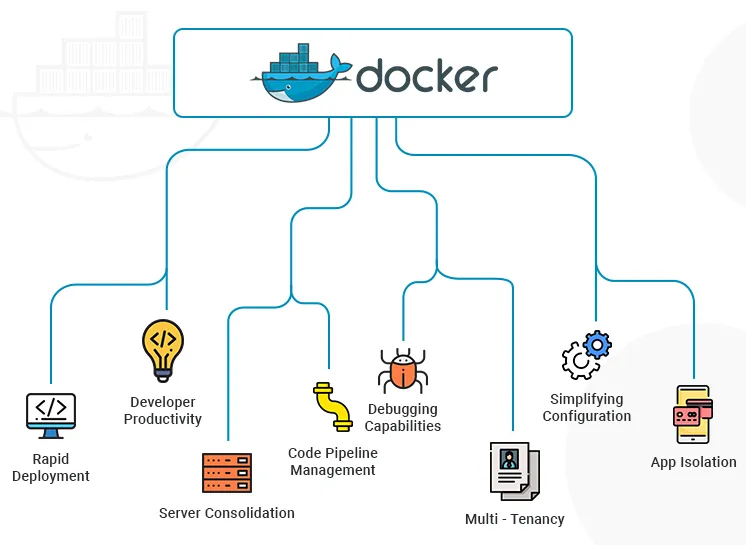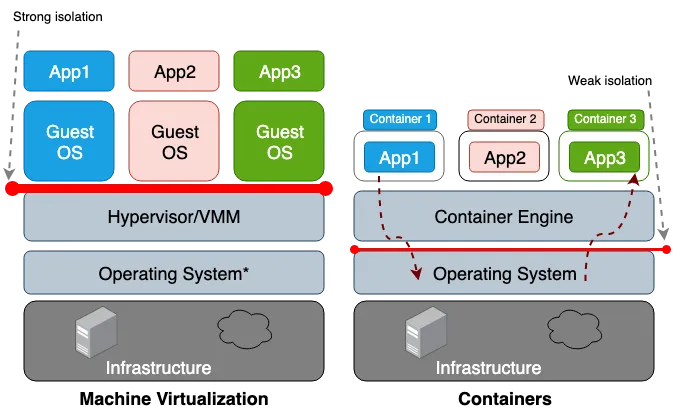In recent years, Docker Containers have gained immense popularity in the realm of cloud computing. Docker provides a lightweight and portable platform for packaging and deploying applications, making it an ideal choice for cloud-based environments.
Portability And Consistency
One of the key advantages of Docker Containers in Cloud Computing is their portability. Docker Containers encapsulate all the dependencies, configurations and runtime environment required to run an application, making them highly portable across different environments. Docker Images which act like a blueprint of containers can be shared. and deploy them to any cloud provider or on-premises infrastructure without worrying about compatibility issues. This portability ensures consistent behavior and eliminates the “it works on my machine” problem, leading to smoother deployments and reduced troubleshooting efforts.
Scalability And Resource Efficiency

Docker Containers provide an efficient and scalable approach to deploying applications in the Cloud. With Docker, applications can be packaged as lightweight containers that share the host operating system’s kernel, reducing resource overhead. This enables efficient utilization of cloud resources and allows for scaling applications horizontally by spinning up multiple containers. Cloud platforms like Amazon Web Services (AWS) and Google Cloud Platform (GCP) provide native support for Docker Containers, enabling seamless scaling and resource management.
Rapid Deployment And Continuous Integration/Continuous Deployment (CI/CD)

Docker Containers streamline the deployment process, allowing for rapid and consistent application deployment in cloud environments. By packaging the application and its runtime dependencies in images, deployment becomes a simple matter of running the container on the cloud platform. Docker also integrates well with CI/CD pipelines, enabling automation and continuous deployment. Developers can automate the build, test, and deployment processes, resulting in faster release cycles and improved time-to-market.
Isolation And Security

Docker Containers provide a high level of isolation between applications and the underlying host system, ensuring security in cloud environments. Each container operates in its own isolated runtime environment, with its own file system, network stack, and process space. This isolation prevents applications from interfering with each other, enhancing overall system stability and security. Docker also provides robust security features such as container image scanning, vulnerability detection, and the ability to apply access controls and restrictions.
Cost Optimization
Using Docker Containers in Cloud Computing can lead to cost optimization and resource efficiency. Containers enable efficient utilization of cloud resources by running multiple containers on a single host, reducing infrastructure costs. They also facilitate dynamic resource allocation, allowing organizations to scale resources up or down based on demand, optimizing costs, and avoiding overprovisioning.
Closing Thoughts
Docker Containers offer significant advantages in Cloud Computing, revolutionizing the way applications are developed, deployed, and managed. The portability, scalability, rapid deployment, isolation, and cost optimization benefits provided by Docker Containers make them a valuable tool for developers, operations teams, and businesses seeking to leverage the power of cloud computing.
By embracing Docker Containers in the cloud, organizations can enhance application agility, accelerate time-to-market, improve resource utilization, and strengthen security. As Cloud Computing continues to evolve, Docker Containers will play a crucial role in enabling efficient and scalable deployment of applications, revolutionizing the cloud landscape.